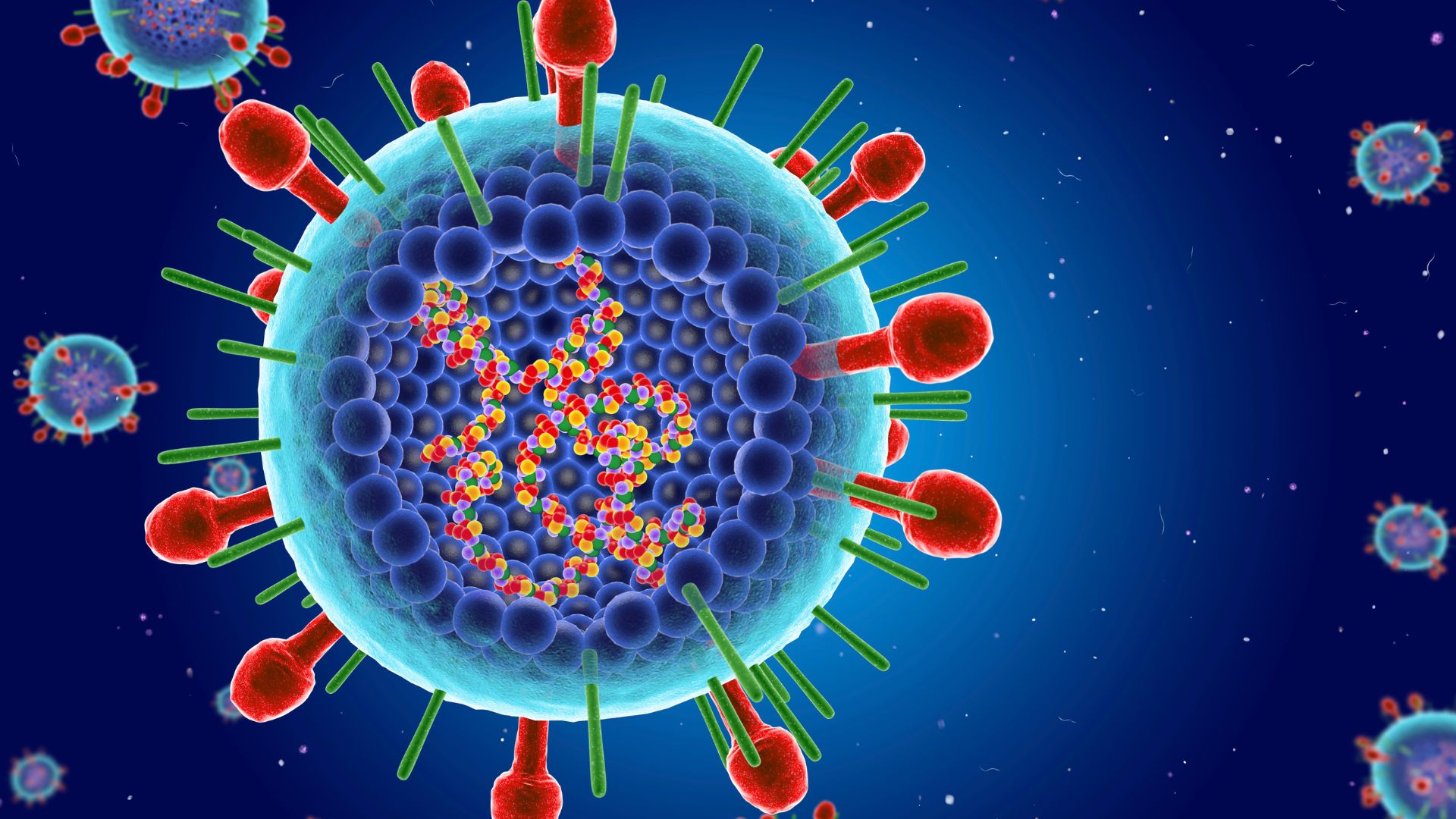New RSV vaccine given in pregnancy protects newborns from illness, Pfizer says
The drugmaker Pfizer announced positive trial results for its RSV vaccine designed to protect newborns.

A new respiratory syncytial virus (RSV) vaccine shielded newborns from severe cases of the illness in the critical months just after birth, the drugmaker Pfizer announced Tuesday (Nov. 1). The one-dose vaccine was given to pregnant people in their second or third trimesters, which triggered production of protective antibodies that then passed through the placenta.
The company monitored infants in the trial for six months after birth and found that, in that time frame, the vaccine was 69.4% effective at preventing severe cases of RSV that would require medical attention. However, the shot's effectiveness was higher — around 81.8% — in the first three months of life.
This drop-off in immunity follows a pattern seen with other vaccines given in pregnancy, such as those for tetanus and whooping cough, which was described in a 2021 report in the journal JAMA Pediatrics. In general, vaccine-induced antibodies fall rapidly in the first two months of life and then steadily dwindle over the following four to eight months.
Pfizer's positive trial results have not yet been peer-reviewed, but the company does plan to submit the data to a scientific journal, according to the statement. The drugmaker also plans to apply for approval from the U.S. Food and Drug Administration (FDA) by the end of 2022.
Related: How to get pregnant: Tips and facts to increase fertility
RSV typically causes mild colds in healthy children and adults, but the virus can cause severe disease in infants younger than age 1 and adults older than age 65, according to the Centers for Disease Control and Prevention (CDC). The infection can migrate from the upper respiratory tract to the lungs, triggering inflammation in the lungs' air sacs (pneumonia) or the organs' small airway passages (bronchiolitis). This inflammation can easily compromise infants' breathing by restricting their tiny airways.
Approximately 58,000 to 80,000 U.S. children under age 5 are hospitalized for RSV each year, and about 100 to 300 children die of the infection, according to the CDC. This year's RSV season kicked off early and aggressively, and doctors have already seen a surge of cases in emergency rooms and pediatric intensive care units, NPR reported.
Sign up for the Live Science daily newsletter now
Get the world’s most fascinating discoveries delivered straight to your inbox.
"We're very hopeful everything can be done in time to vaccinate mothers before the next RSV season," Annaliesa Anderson, chief scientific officer of vaccine research and development at Pfizer, told The Washington Post. "We're about to come into a very heavy RSV season. We’re seeing hospitals filling up. Everyone appreciates the urgency that can really help to prevent this."
Pfizer's vaccine contains crystalized "F" proteins, which RSV viruses use to enter human cells. The shot carries two versions of the F protein, representing the two major subgroups of RSV: subgroups A and B. These proteins are locked into the shape they adopt just before they fuse to a cell.
The recent trial included 7,400 pregnant individuals, age 49 and younger, who either received the RSV vaccine or a placebo shot in their late second to third trimester. The trial spanned 18 countries and began in June 2020, meaning it covered multiple RSV seasons in both hemispheres, according to Pfizer's statement.
The statement also noted that the shots were "well-tolerated with no safety concerns for both the vaccinated individuals and their newborns."
As the new maternal RSV shots move towards FDA approval, there's also been good news regarding an RSV vaccine for older adults. Pfizer announced similarly positive results from its late-stage trial in people ages 60 and older back in August.

Nicoletta Lanese is the health channel editor at Live Science and was previously a news editor and staff writer at the site. She holds a graduate certificate in science communication from UC Santa Cruz and degrees in neuroscience and dance from the University of Florida. Her work has appeared in The Scientist, Science News, the Mercury News, Mongabay and Stanford Medicine Magazine, among other outlets. Based in NYC, she also remains heavily involved in dance and performs in local choreographers' work.









